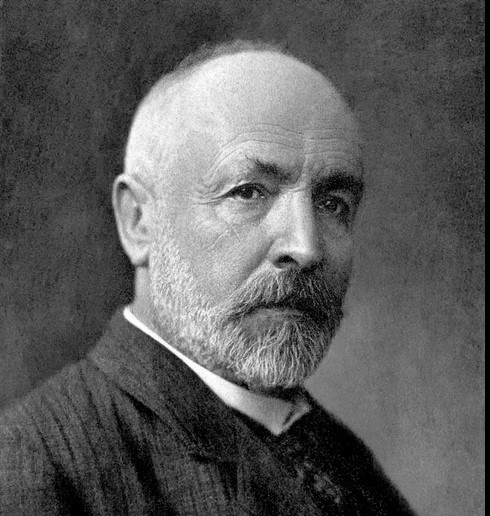How many infinities are there?

An infinite number it seems
This snippet is about infinities: numbered zero, one and two! What? Is there more than one infinity? Oh yes! Georg Cantor, left, a famous mathematician, showed this.
Georg Cantor was born in Russia but in about 1855 at the age of 11, he was living in Germany. He became a mathematics professor at a university. He also became an outstanding violinist, encouraged particularly by his artistic mother. He always felt uprooted in Germany, with nostalgia for Russia and St Petersburg, but never wrote Russian material.
He is most famous for studying infinity, by which I mean all the whole numbers we use, eg (in no significant order ) 1,2,3,4,5,35,99,203,135,366, etc, and which he called aleph zero. He was able to prove mathematically that there was a second infinity which he called aleph one, and that it was larger than aleph zero, the usual infinity of numbers that we think we know well. (For the technically minded: all the possible combinations of the whole numbers is greater than the number of whole numbers! ) He went further and found there was an aleph two, three……etc. In fact the number of alephs went to infinity! There was an infinity of infinities!
As a Christian believer he wanted to call this infinity of infinities, God. He even believed God had inspired his discovery and wanted him (Cantor) to share with the world how insignificant even our infinity of countable numbers are! But he encountered strong opposition from many other mathematicians to his overwhelming vision of an infinity of infinities. It may have contributed to his life-long struggle with depression? If so, how ironic that such a stupendous discovery led to depression rather than elation.
So, God might be an infinity of infinities rather than an Aleph infinity? In a remarkable anticipation of Cantor, St Augustine of Hippo in the fourth century said. “Every infinity is made finite to God”. But Cantor’s contribution was uniquely mathematical, not uniquely theological.
Today his vision of infinities is now a standard feature in mathematical courses, and extremely useful in many mathematical fields, so much so that it is called Cantor’s Paradise, and famous German mathematician, David Hilbert, defended it from its critics by declaring, "No one shall expel us from the paradise that Cantor has created”.
It seems Cantor’s work is starting to prove important in some parts of modern high energy physics, not just in mathematical theory.
Cantor died in 1918. The paradise he has now found must be infinitely greater than any paradise he discovered during his life.